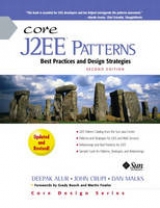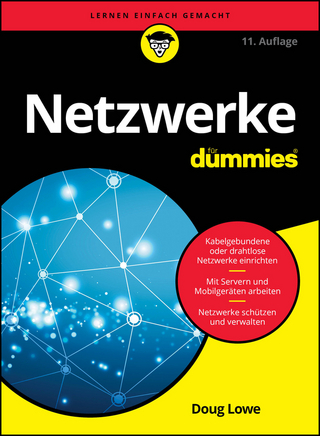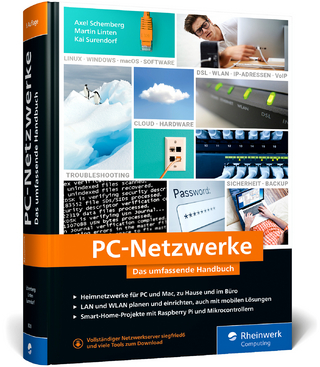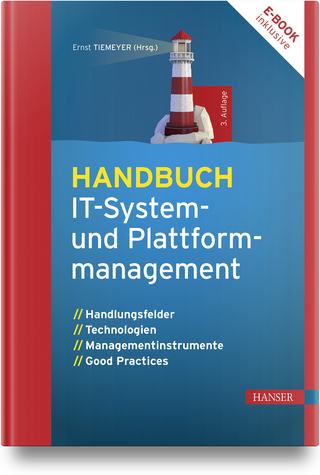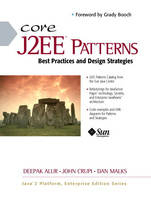
Core J2EE Patterns
Prentice Hall (Verlag)
978-0-13-064884-6 (ISBN)
- Titel erscheint in neuer Auflage
- Artikel merken
Sun Microsystems' Java 2 Platform, Enterprise Edition (J2EE) has become the platform of choice for Web-centric distributed enterprise application development. Expert consultants from the Sun Java Center have been helping customers build J2EE-based solutions since the earliest days of the technology, focusing primarily on up-front design and architecture. Along the way, they've identified powerful J2EE design patterns that lead to applications with superior performance, scalability, and robustness. This book brings those design patterns together, sharing Sun's best practices for development with Java Server Pages (JSP), Servlets, EJB, and other J2EE technologies. It presents a complete catalog of J2EE patterns encapsulating proven and recommended designs for common J2EE-related problems, organized into presentation tier, business tier and integration tier solutions. Presentation tier patterns describe solutions involving JSP and servlets; business tier patterns describe solutions involving EJB; and integration tier patterns describe solutions involving JDBC and Java Messaging Service (JMS). The book also identifies bad practices to be avoided.
Finally, it presents an end-to-end multi-tier case study covering every stage of enterprise development.
DEEPAK ALUR is an Enterprise Java Architect with the Sun Java Center. He has over 12 years of experience in the software industry. He has been focused on design and implementation of enterprise applications using Object-Oriented technologies, patterns, Java, and J2EE. JOHN CRUPI is the Chief Java Architect of the Sun Java Center. He has over 15 years of experience in distributed object computing and remains focused on creating reusable, scalable architectures for J2EE. He is also a JavaReport columnist for the Architect's Corner. DAN MALKS is an Enterprise Java Architect with the Sun Java Center. He has over 14 years of experience in the software industry and focuses on Object-Oriented technologies. He has been published in numerous industry periodicals and books on Java, J2EE, and patterns.
Foreword.
Preface.
Acknowledgments.
I. PATTERNS AND J2EE.
1. Introduction.
What Is J2EE? What Are Patterns? Historical References. Defining a Pattern. Categorizing Patterns. J2EE Pattern Catalog. Continuous Evolution. How to Use the J2EE Pattern Catalog. Benefits of Using Patterns. Patterns, Frameworks, and Reuse. Summary.
2. J2EE Platform Overview.
A Brief Perspective. Application Servers-The New Breed. Convergence of Java Technologies. The Rise of the J2EE Platform. J2EE Value Proposition. J2EE Platform. J2EE Architecture. Java 2 Standard Edition. J2EE Application Components and Containers. Standard Services. J2EE Platform Roles. Deployment Descriptors. J2EE Patterns and J2EE Platform. Summary.
II. DESIGN CONSIDERATIONS, BAD PRACTICES, AND REFACTORINGS.
3. Presentation Tier Design Considerations and Bad Practices.
Presentation Tier Design Considerations. Session Management. Controlling Client Access. Validation. Helper Properties-Integrity and Consistency. Presentation Tier Bad Practices. Control Code in Multiple Views. Exposing Presentation-Tier Data Structures to Business Tier. Exposing Presentation-Tier Data Structures to Domain Objects. Allowing Duplicate Form Submissions. Exposing Sensitive Resources to Direct Client Access. Assuming Will Reset Bean Properties. Creating Fat Controllers.
4. Business Tier Design Considerations and Bad Practices.
Business Tier Design Considerations. Using Session Beans. Using Entity Beans. Caching Enterprise Bean Remote References and Handles. Business and Integration Tiers Bad Practices. Mapping Object Model Directly to Entity Bean Model. Mapping Relational Model Directly to Entity Bean Model. Mapping Each Use Case to a Session Bean. Exposing All Enterprise Bean Attributes via Getter/Setter Methods. Embedding Service Lookup in Clients. Using Entity Bean as Read-Only Object. Using Entity Beans as Fine-Grained Objects. Storing Entire Entity Bean-Dependent Object Graph. Exposing EJB-related Exceptions to Non-EJB Clients. Using Entity Bean Finder Methods to Return a Large Results Set. Client Aggregates Data from Business Components. Using Enterprise Beans for Long-Lived Transactions. Stateless Session Bean Reconstructs Conversational State for Each Invocation.
5. J2EE Refactorings.
Presentation Tier Refactorings. Introduce a Controller. Introduce Synchronizer Token. Localize Disparate Logic. Hide Presentation Tier-Specific Details From the Business Tier. Remove Conversions from View. Hide Resource From a Client. Business and Integration Tier Refactorings. Wrap Entities With Session. Introduce Business Delegate. Merge Session Beans. Eliminate Inter-Entity Bean Communication. Move Business Logic to Session. General Refactorings. Separate Data Access Code. Refactor Architecture by Tiers. Use A Connection Pool.
III. J2EE PATTERN CATALOG.
6. J2EE Patterns Overview.
What Is a Pattern? Identifying a Pattern. The Tiered Approach. J2EE Patterns. Presentation Tier Patterns. Business Tier Patterns. Integration Tier Patterns. Guide to the Catalog. Terminology. Use of UML. Pattern Template. J2EE Pattern Relationships. Relationship to Known Patterns. Patterns Roadmap. Summary.
7. Presentation Tier Patterns.
Intercepting Filter. Context. Problem. Forces. Solution. Consequences. Related Patterns. Front Controller. Context. Problem. Forces. Solution. Consequences. Related Patterns. View Helper. Context. Problem. Forces. Solution. Consequences. Related Patterns. Composite View. Context. Problem. Forces. Solution. Consequences. Sample Code. Related Patterns. Service to Worker. Context. Problem. Forces. Solution. Consequences. Sample Code. Related Patterns. Dispatcher View. Context. Problem. Forces. Solution. Consequences. Sample Code. Related Patterns.
8. Business Tier Patterns.
Business Delegate. Context. Problem. Forces. Solution. Consequences. Sample Code. Related Patterns. Value Object. Context. Problem. Forces. Solution. Consequences. Sample Code. Related Patterns. Session Facade. Context. Problem. Forces. Solution. Consequences. Sample Code. Related Patterns. Composite Entity. Context. Problem. Forces. Solution. Consequences. Sample Code. Related Patterns. Value Object Assembler. Context. Problem. Forces. Solution. Consequences. Sample Code. Related Patterns. Value List Handler. Context. Problem. Forces. Solution. Consequences. Sample Code. Related Patterns. Service Locator. Context. Problem. Forces. Solution. Consequences. Sample Code. Related Patterns.
9. Integration Tier Patterns.
Data Access Object. Context. Problem. Forces. Solution. Consequences. Sample Code. Related Patterns. Service Activator. Context. Problem. Forces. Solution. Consequences. Sample Code. Related Patterns. EPILOGUE J2EE Patterns Applied. PSA Overview. Use Case Model. Use Cases, Patterns, and Pattern Frameworks. Create Project Use Case. Pattern Identification. Pattern Realization. Reserve Resource Use Case. Pattern Identification. Pattern Realization. Find Available Resources Use Case. Pattern Identification. Pattern Realization. Bibliography. Apache Software License.
Index.
| Erscheint lt. Verlag | 9.7.2001 |
|---|---|
| Verlagsort | Upper Saddle River |
| Sprache | englisch |
| Maße | 178 x 235 mm |
| Gewicht | 944 g |
| Themenwelt | Mathematik / Informatik ► Informatik ► Netzwerke |
| Mathematik / Informatik ► Informatik ► Theorie / Studium | |
| Mathematik / Informatik ► Informatik ► Web / Internet | |
| ISBN-10 | 0-13-064884-1 / 0130648841 |
| ISBN-13 | 978-0-13-064884-6 / 9780130648846 |
| Zustand | Neuware |
| Informationen gemäß Produktsicherheitsverordnung (GPSR) | |
| Haben Sie eine Frage zum Produkt? |
aus dem Bereich
